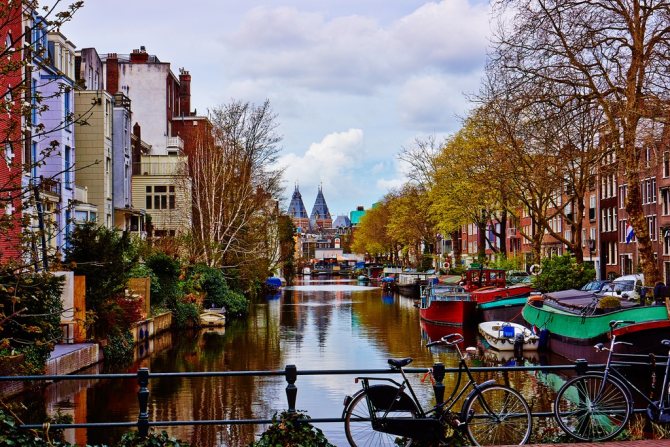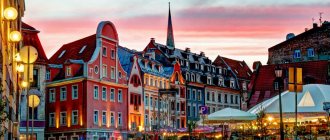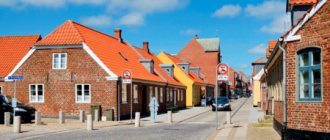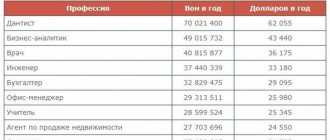All I know about Ireland, Mom, is Jameson, Guinness and Connemara. © Spleen
Killiney, a southern suburb of Dublin. This is where U2's Bono's mansion is located
The other day, Facebook reminded me that exactly a year ago I was walking around London at night, waiting for my connection to a flight to Kyiv. I was returning home after 20 months in Ireland.
I would like to tell a different story of returning from Europe, to try to honestly answer the questions that I was asked during this year, but there was not always time to answer them in detail.
So, an offer to work as an automation technician in Dublin suddenly arose, and although I had previously refused vacancies abroad, this time I thought about it, since Ireland was really interesting to me. First of all, this is not trivial. Ireland has only attracted the attention of Ukrainian IT specialists in the last couple of years. Secondly, this is a beautiful country, and I wanted to compare the pictures with reality. Thirdly, Irish music is close to me, but, in truth, this is just an emotional add-on.

Lighthouse in Howth, a northern suburb of Dublin
Income of the population
An income of around 1,600 euros (117,700 rubles) per month is considered low. This is the minimum; they simply cannot pay less by law. As elsewhere, people who do low-skilled jobs that anyone can do, such as cleaners and fast food workers, earn little. The average income depends on the field in which a person works, but in general it is approximately 2,500–3,000 euros (183,900–220,700 rubles) per month. This requires education and good knowledge of English.
They earn quite a lot in IT, medicine, biotechnology, and engineering. Such specialists can receive from 4 thousand euros (294,200 rubles) per month. For highly qualified professionals, income can reach up to 100 thousand euros (7,357,700 rubles) per year. In Ireland, it is customary to consider annual income, because in addition to salary, it includes various bonuses.
Labor market and wage level
The main directions of development of the country's economy are IT. The company's main activities are pharmaceutical production, construction and medical equipment. There is a regular need for new specialists in these areas.
The level of wages in the country depends on the specialty of training.
- Junior employees' incomes range from 15 to 34 thousand euros per year.
- Center employees will receive 0 euros.
- The salary for beginners in sales is 15,000 euros.
- Engineers' salaries range from 23,000 to 30,000 euros.
- Programmers can expect to earn between 22,000 and 34,000 euros per year.
Overall, the salary level is very attractive compared to many European countries.
Where and by whom do Russians work?
Most of the people who came from Russia and other countries. CIS are actively working on construction sites and factories, as well as in the service sector. Russian citizens with higher education in the field of exact sciences or medicine can count on higher-paying jobs in their field.
Average income of residents
The average income level in the country is higher than in Spain, Portugal, Italy and Greece. Although taxes here are high (in some cases they can reach 40%), the average Irish citizen is left with approximately €24-27 thousand after paying it.
The minimum wage in the country is 1,460 euros. However, less than half the population receives them. Most Irish people are more used to a monthly income of €3,000.
Own business in the country
World Bank statistics show that Ireland is part of the World Bank. TOP 10 countries for successful business. A business in Ireland can be registered in just two weeks.
It is necessary to pay attention to the most promising areas that are actively developing in the country and are supported by the state:
- pharmaceutical industry;
- Production of medical equipment;
- IT -Sphere;
- Entertainment and leisure.
Some companies (for example, fishing or pharmaceutical) require a license. Income tax is approximately 12.5%, but can be reduced to 10% with existing incentives.
Housing
1,200 euros per month for a small studio and 1,800 for a two-bedroom house
Mostly locals live as families in their houses with several bedrooms. Children are loved, there are usually two or three of them, but when they grow up, they leave their parents’ nest and begin to live separately. Decent housing will cost from 1,300 (95,600 rubles) to 1,600 euros (117,700 rubles) per month, 1,800 euros (132,400 rubles) is already a good house. In Dublin, as in Moscow, everything depends on the area: the more decent and closer to the center, the more expensive. There is also prestigious housing for 2 thousand euros (147,100 rubles) per month for those who can afford it.
Sometimes visitors unite and rent a house for two families, then they have to pay only 700–1,000 euros (51,500–73,500 rubles) per month. This allows you to save money, but as soon as the opportunity arises to take out a loan for your own home or rent a separate house, they do it immediately.
There are also apartments, but only in the city center, and the price range is about the same. Even small studios will cost from 1,200 euros (88,200 rubles) per month.
Real estate in Ireland
Real estate prices here are quite high. The cost of a square meter of a house in one of the cities of Ireland reaches 5,000 euros. But there is a way out: you can live in a small town where price tags don’t bite so much. For example, in Cork the cost per square meter will be 2-2.5 thousand euros.
Rental of property
You can rent a one-room apartment in the capital for a thousand euros per month. In small cities this amount will be 600-800 euros. At the same time, the tenant pays additional costs on his own, and depending on the area of the rented apartment, they amount to another 80-150 euros.
I also read: Immigration to Ireland Working in Ireland
Purchase
Buying an apartment in Ireland is a good investment for those who have enough money. The most popular properties to buy are houses, with apartments in Dublin and other cities taking a respectable second place in the ranking.
To understand how much property you need to buy in Ireland, we look at the prices of popular properties:
- A 45m2 house 2 closer to Dublin city center will cost an average of €200,000. Euro;
- An apartment in a dorm of a slightly larger size, for example 60 m2, will cost 150 thousand euros, since it is located far from the center, and the general demand for apartments is slightly lower than for housing.
When looking for a suitable option, it is best to hire an adviser, as buying an apartment requires a good knowledge of the market and Irish law.
Transport
Travel around the city by tram or bus - from 2 euros
Public transport in Dublin is good. Double-decker buses run strictly on schedule, trams are quiet and comfortable. There are even chargers for mobile devices. On average, a trip costs from two euros (147 rubles), and its price increases depending on the distance. For regular trips it is better to buy a travel card. I top up the card with about 20–30 euros (1,470–2,200 rubles), and that’s enough for me for a month.
Taxi prices depend on distances, everything is strictly according to the meter. If you are traveling nearby, there is no point in ordering a taxi at all. A trip from the center to the airport will cost 20 euros (1,470 rubles), and around the city 10–15 euros (730–1,100 rubles). Gasoline is expensive here, about 1.4 euros (103 rubles) per liter, and the pay for taxi drivers’ working hours is decent.
Minimum salary in the Netherlands in 2021
Every citizen between 21 and 65 years of age who works full-time must receive the level of pay set by the government. From July 1 of this year, the minimum wage in the country is 1,635.6 euros, which in rubles is 116,825.18.
Only unskilled workers (cleaners, nannies without pedagogical education, maids, seasonal workers, general workers) receive the minimum wage. Any person with secondary specialized or higher education can count on a higher salary.
The government of the Netherlands indexes the minimum wage twice a year.
For workers under full age, low rates are established: 30–80% of the basic minimum salary.
The minimum monthly salaries for youth are as follows:
- 15 years - 490.7 € (35,046 ₽);
- 16 years old - 564.3 € (40,303 ₽);
- 17 years old - 646.05 € (46,142 rubles);
- 18 years old - 817.8 € (58,408 ₽);
- 19 years old - 981.35 € (70,090 rubles);
- 20 years - 1308.5 € (93,456 ₽).
Salary directly depends on the level of education. The country even has an official document that outlines salaries depending on the level of the educational institution and faculty.
In terms of minimum wage, the Netherlands is ahead of most EU countries, including:
- UK - 1524 € (108,852 ₽);
- France - 1521 € (108,637 ₽);
- Germany - 1557 € (111,209 ₽).
Only three eurozone countries have higher minimum wages:
- Belgium - 1539 € (109,923 ₽);
- Ireland - 1656 € (118,280 ₽);
- Luxembourg - 2071 € (147,916 ₽).
In Russia the minimum wage is 10 times lower than in the Netherlands.
Medicine
Health insurance tax - approximately 5% of income
Everyone is insured, otherwise treatment of any disease will be very expensive. There is such a thing as National Insurance; deductions for insurance come directly from your salary, which is about 5%. In this case, you can visit doctors for free, or rather, everything is paid for by tax. Insurance covers everything, even dental treatment, but it is difficult to get to the doctor; appointments are made a week in advance. The emergency room is even worse: you have to wait in line for four hours before they see you.
Average salary in the Netherlands in 2021
The national statistics agency CBS published statistics on October 3, 2021: revenue growth was recorded by 2.6% over the past 3 months. This is the best figure in the last ten years.

The hotel business is developed in Amsterdam: every year 10 million tourists come to admire this city
The most significant increase in income was in construction - by 4%, and in the hotel business - by 3.7%. But CBS warns that inflation (about 2.7%) will absorb most of the salary increase. A reduction in the tax burden in 2021 will soften this blow.
The trade union federation FNV will aim to increase average salaries of employees in all sectors of the economy by 5% next year.
According to statistics from the Central Bureau of Statistics, in 2019 the average salary in the country is 2,855 euros (203,868 rubles) before taxes. After taxes - 2152 euros (153,668 rubles).
Persons working in the public sector (including television and radio broadcasting) cannot earn more than 181 thousand euros (12.9 million rubles) per year, or 15,083 euros (1,076,971 rubles) per month. This is enshrined at the legislative level.
Average salary in Amsterdam
Income levels vary depending on the area of employment and region. In Amsterdam, men receive on average 4,175 euros (298,036 rubles), women - 3,400 euros (242,712 rubles). The calculation takes into account both doctors, top managers, IT specialists with large salaries, and unskilled workers.
Specialists from the Swiss bank UBS found that a person with the average salary of a qualified specialist will have to work in Amsterdam for 10 years to buy a two-room apartment. For comparison: in Paris - 14 years (with the same money you can rent a house for 36 years), in London - 15 years.
Capital salaries are on average 20% higher than in other regions of the country.
Average salary in the Netherlands:
Products
Food basket in a supermarket - 45–50 euros per family
The best option is to shop in supermarkets; locals usually do this. Favorite chains are Tesco, Lidl, Dunnes. Groceries are usually purchased on weekends for a week in advance. We usually spend 45–50 euros (3,300–3,670 rubles) per family, but we always take a lot of vegetables, fruits and berries. For one you can spend 15–20 euros (1,100–1,470 rubles). Bread costs 60–80 cents (44 rubles), milk - about one euro (73 rubles), eggs - about three euros (220 rubles) for 12 pieces, a kilogram of meat - about ten euros (735 rubles).
Income by profession
Teachers in the Netherlands earn 3,500 euros (249,882 rubles) per month before taxes. Salaries are no more than average, so the education sector is understaffed and there is a significant deficit. Engineers and junior managers receive 1,920–1,970 euros (137,082–140,652 rubles), an architect on probation - 1,300 euros (92,813 rubles), after completion - 1,900 euros (135,650 rubles).
A resident of Polesie (Republic of Belarus), who has been living and working in the Netherlands for several months, told the Belarusian publication that the average salary of construction specialists in his profile (finishing work) is 5,000 euros, which is equivalent to 356,920 rubles. Average income in the country is about 2000–3000 euros (142,755–214,152 rubles).
The wages of low-skilled personnel are calculated based on the number of hours worked. The rate is 6–10 euros (428–714 rubles) per hour. Nannies, laborers, vegetable pickers, and cleaners work under this system.
In developed European countries, the income level of officials is approximately the same as that of representatives of the middle class. Parliamentarians in the Netherlands earn 7,481 euros (534,532 rubles) per month before taxes. The wage gap between the middle class and deputies in the Netherlands is 2.62, in Russia it is 9.13.











